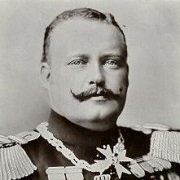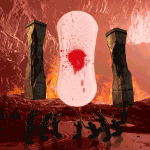|
Tesseraction posted:As a point of comparison, Britain is also a former empire island and Brits almost certainly know nothing of our imperial atrocities. The second in command in the opposition party (John McDonnell) was given a media fuckbarrel for saying that Churchill was bad for the Bengal Famine which killed at least 2 million and more likely 3 million people. No-one even knew what McDonnell was talking about even though it was one of the many big events that led to Gandhi's independence movement gaining such strength. This is to say nothing of how our government has handled the independence of Ireland to this day. Apparently I've seen this video go around about the famine. https://www.youtube.com/watch?v=M4m_BwYeIRo I assume it's revisionist history? punk rebel ecks fucked around with this message at 18:56 on Sep 2, 2019 |
|
|
|

|
| # ? May 11, 2024 16:07 |
|
Bloodnose posted:Your Lefty friends have the wrong idea. Generally it's the cold, meticulous, industrialized nature of the Holocaust that makes it so unique. It's why all the imagery focuses on the death camps, and not the good old fashioned massacres in the east that had comparable body counts. People who care about how white and European people are typically do not cry for dead Jews. Isn't almost everything about the Eastern Front neglected or misunderstood? Like it was a myth for a long time that Russia just threw bodies at the Nazis and only held them off that way? It kinda goes along with the point in a way, We care more about some victims more than others. I see your point, though and it makes sense.. But having a (Western) Eurocentric worldview isn't just something Antisemites do.
|
|
|
|
Bloodnose posted:Your Lefty friends have the wrong idea. Generally it's the cold, meticulous, industrialized nature of the Holocaust that makes it so unique. It's why all the imagery focuses on the death camps, and not the good old fashioned massacres in the east that had comparable body counts. People who care about how white and European people are typically do not cry for dead Jews. I mean, you're not wrong about the industrialized nature, but other modern genocidal campaigns weren't much less industrialized, they were just in colonial states so nobody cared. Concentration camps first started to pop up in the late 1800s in spanish/british/us held terrotories after all. Nazis just took it one level further. Also, racists *extremely* care about minorities when it fits their agenda. "Stalin was definitely worse than even holocaust" and "hitler did nothing wrong" are both pretty popular talking points from the same people. They use it when it fits them and discard it when it doesn't.
|
|
|
|
NikkolasKing posted:Isn't almost everything about the Eastern Front neglected or misunderstood? Like it was a myth for a long time that Russia just threw bodies at the Nazis and only held them off that way? It kinda goes along with the point in a way, We care more about some victims more than others. Yeah the popular history of the war in the east is pretty much entirely written by German generals trying to ingratiate themselves to their new NATO allies, so you have the twin narratives that the Wehrmacht was just a bunch of apolitical patriots fighting bravely for their homeland and being put in an impossible position by that ker-razy Hitler and his interference, and that the Slavic Bolshevist hordes only won because they had no regard for human life and overwhelmed the Germans with unsophisticated human wave tactics that the brilliant German generals simply could not overcome despite their best efforts. Of course, you're not supposed to ask how you defend your homeland from thousands of miles inside of somebody else's homeland in a war you started, or why they went along with an unhinged whackjob like Hitler for so long, or a million other questions that blow that narratives apart. You just gotta take Hans von Klauffensteuffel's word for it that he was a brilliant general who was definitely not a Nazi and that he intimately understands the tactics of the Asiatic Communist hordes because somebody's gotta command the Bundeswehr when WWIII kicks off.
|
|
|
|
Truga posted:I mean, you're not wrong about the industrialized nature, but other modern genocidal campaigns weren't much less industrialized, they were just in colonial states so nobody cared. Concentration camps first started to pop up in the late 1800s in spanish/british/us held terrotories after all. Nazis just took it one level further. The difference between concentration camps and death camps is a big deal.
|
|
|
|
Pornographic Memory posted:Of course, you're not supposed to ask how you defend your homeland from thousands of miles inside of somebody else's homeland in a war you started, I don't know where you get "fighting for the fatherland" = "defending the homeland". Everyone involved was very well aware that it was a power grab very much in the tradition of the European tit-for-tat power grabs that had been going on for centuries. Germany had a good chunk of revanchism on the boil and in Europe the traditional way to deal with that was to merrily revanche yourself all over your neighbours who you thought wronged you and grab some land on the side from people weaker than you. See, Napoleon, the partition of Poland, the Great Northern War, etc etc etc. Centuries of warfare and conflict. Also, the whole manifest destiny, and new frontier to be claimed if only the savages could be displaced somehow was in the air in general in the preceding century. In the case of Hitler and the Slavs they just happened to be whiter and more European than most of the usual targets. Decolonization only seriously kicked off after WW2. What made Hitler (and his many collaborators) special rather than another Napoleon is the fact that he (and they) had turned his anti-semitism up to 12, homophobia, and general bigotry up to 11 instead of the steady rolling boil of the 7 or so it generally was at the time. Then acting on that in the most cruel and depraved manner. Anyway, I would actually be interested in knowing what is currently in the news in Japan which is kinda why I dropped back into this thread in the first place...
|
|
|
|
Abe's reshuffling his cabinet, it's pretty boring.
|
|
|
|
Charles 2 of Spain posted:Abe's reshuffling his cabinet, it's pretty boring. So one of the few places where various political factions are not self-destructing in a hilarious manner. Just a long dark teatime of the soul.
|
|
|
|
Munin posted:What made Hitler (and his many collaborators) special rather than another Napoleon is the fact that he (and they) had turned his anti-semitism up to 12, homophobia, and general bigotry up to 11 instead of the steady rolling boil of the 7 or so it generally was at the time. Then acting on that in the most cruel and depraved manner. The Nazis were so anti-semetic, they put diplomatic pressure on Imperial Japan to deal with the very, very few Jews living in Asia. That sort of behavior isn't even common to typical ethic cleansings.
|
|
|
|
golden bubble posted:The Nazis were so anti-semetic, they put diplomatic pressure on Imperial Japan to deal with the very, very few Jews living in Asia. That sort of behavior isn't even common to typical ethic cleansings.
|
|
|
|
open question when you spend long enough talking about genocide/war crimes/crimes against humanity: will you ever find these things being punished in a country that is not at the mercy of other countries? what's the best that we have as examples of crimes against humanity or war crimes being punished within a country, not as a result of the intervention of another country? apologies if this is a bad or unnecessarily provocative question
|
|
|
|
Rwanda.
|
|
|
|
Holy poo poo this thread is full of a bunch of posters who don't really have a formal education in Asian studies and I can't believe I have to defend LimburgLimbo who probably is the only one who actually has studied Japanese Asian studies extensively.LimburgLimbo posted:Also even the ones that aren’t openly revisionist don’t address it as well as they should, but nonetheless the narrative which is often pushed that big old Monolithic Other the Mysterious Oriental Japanese Race as one all deny wartime crimes and aggression is dumb and honestly insulting considering the many voices in Japan that have been fighting for more attention for past crimes, and organizations like the teachers union which has been a bastion against the creeping far right nationalism seen in every industrialized nation Exactly. true.spoon posted:Like mentioned before, I think the problem in how past crimes are engaged with in the Japanese mainstream lies more in the general framing and less in outright denial. The reason a lot of Japanese people don't really know or care about Okinawa to a great extent is because Japanese people don't really remember history very well except for the center exams. I'm afraid it's as simple as that. The documentary you are watching is jumping straight to conclusions, given that (a) NHK and TBS basically have weekly WW2 related history documentaries that nobody watches all of the time which go into depressing as hell things, including how the IJN and IJA were backhandedly corrupt and terrible as hell and did awful things and (b) this is covered in a lot of Japanese novels/media. You're jumping into conclusions about culture and incorrectly comparing Germany and Japan without all of the context or a background in studies. For fucks sake, there was a NHK documentary recently revealed that points out to a lot of new materials that indicate that Hirohito (Showa Tennou) felt extremely deep remorse for the Nanjing massacre specifically and wanted to apologize to the people about it for his entire life post WW2. He famously would rather die than live a long time because he wrote that he wanted less depression from reflecting back on WW2. To be fair, the Imperial Household Agency was indeed a piece of poo poo and covered up the apology.
|
|
|
|
I am old and did my Asian studies stuff a decade ago but at that time the Imperial Household Agency was still very decidedly poo poo. Is it not poo poo anymore?
|
|
|
|
ntan1 posted:The reason a lot of Japanese people don't really know or care about Okinawa to a great extent is because Japanese people don't really remember history very well except for the center exams. I'm afraid it's as simple as that. quote:The documentary you are watching is jumping straight to conclusions, given that (a) NHK and TBS basically have weekly WW2 related history documentaries that nobody watches all of the time which go into depressing as hell things, including how the IJN and IJA were backhandedly corrupt and terrible as hell and did awful things and (b) this is covered in a lot of Japanese novels/media. You're jumping into conclusions about culture and incorrectly comparing Germany and Japan without all of the context or a background in studies. If you have studied this subject then I will gladly listen to your comments and explanations and promise you to be open to them. Maybe my post left the impression that my view is based on this one experience but this was just a recent memorable example. I have a general interest in these issues and have, though not rigorously, engaged with related sociological material. quote:For fucks sake, there was a NHK documentary recently revealed that points out to a lot of new materials that indicate that Hirohito (Showa Tennou) felt extremely deep remorse for the Nanjing massacre specifically and wanted to apologize to the people about it for his entire life post WW2. He famously would rather die than live a long time because he wrote that he wanted less depression from reflecting back on WW2. I really get how annoying the general discourse about Japan is but people can constructively talk about foreign countries without having a degree in that field. When icantfindaname made some very wrong assumptions about Germany I explained that to him (well mostly) instead of telling him that he can't possibly talk about it. Japan is not that special. true.spoon fucked around with this message at 00:08 on Sep 7, 2019 |
|
|
|
ntan1 posted:Holy poo poo this thread is full of a bunch of posters who don't really have a formal education in Asian studies and I can't believe I have to defend LimburgLimbo who probably is the only one who actually has studied Japanese Asian studies extensively. unlike all the other threads on SA, where people definitely know what they are talking about
|
|
|
|
Someone should do a galactic brain meme on the takes people have about Japan because there are definitely two tiers of "I'm a long time expat in Japan" brain going from "Japan is misunderstood by outsiders" to "Japan is misunderstood by outsiders and is actually worse than people think"
|
|
|
|
shrike82 posted:Someone should do a galactic brain meme on the takes people have about Japan because there are definitely two tiers of "I'm a long time expat in Japan" brain going from "Japan is misunderstood by outsiders" to "Japan is misunderstood by outsiders and is actually worse than people think"
|
|
|
|
shrike82 posted:Someone should do a galactic brain meme on the takes people have about Japan because there are definitely two tiers of "I'm a long time expat in Japan" brain going from "Japan is misunderstood by outsiders" to "Japan is misunderstood by outsiders and is actually worse than people think" Give Adelstein his own level.
|
|
|
|
It still confuses me that Adelstein is apparently the only English-speaking talking head western media can get when there’s something about Japan. It’s always him.
|
|
|
|
ntan1 posted:The reason a lot of Japanese people don't really know or care about Okinawa to a great extent is because Japanese people don't really remember history very well except for the center exams. I'm afraid it's as simple as that. Isn't that one of the core thing though? Germany has holocaust memorials all over the place. When I moved there as a kid the first book I read in German was a translation of "When Hitler Stole Pink Rabbit" (as an aside, first book on the reading list when I got to the UK was "Across the Barricades" a book about the Troubles...). Then there are initiatives like "Stolpersteine" which incorporate memorialization into the very fabric of the streets and city. If you walk around Berlin these days you have to willfully shut your eyes to overlook what happened there in the past. It permeates society society in a way that, say, the inhumanity and atrocities of the British Empire definitely do not in England. I would be surprised even even 10% of people asked on the street would know of the burning of the Summer Palace or the Opium Wars is general let alone any of the other bullshit we got up to. Another bit of it making minor waves was the treatment of the Mau Mau independence movement in Kenya after some "lost" archives turned up again. Did you know that the UK tortured Obama's grandfather and thousands of other Kenyans? You can't escape it in Germany but it sounds like you very much can in Japan (and also definitely so in the UK).
|
|
|
|
Cool! https://twitter.com/japantimes/status/1183568115914944516 Also, it's time to play a regular game I like to call "let's see if the mainstream American liberal media in TYOOL 2019 can write a story on Japan not chock-full of Nihonjinron garbage taken at face value and 1940s-vintage Ruth Benedict racism and orientalism" Verdict: Ahahahahaha no https://www.theatlantic.com/health/archive/2019/10/modern-type-depression-japan/600160 quote:A ‘Modern’ Depression Is Creeping Into Japanese Workplaces Wasn't yutori education a 90s thing, or was there some sort of prelude in the 70s? Is this just a gross factual error (in an article about Japan????) taken at face value from a kook-sounding Japanese pop psychologist? icantfindaname fucked around with this message at 19:48 on Oct 16, 2019 |
|
|
|
In the first place I just don't see the logical connection between the assertion that "Either way, the more relaxed system offered fewer opportunities to contend with demanding authority figures or competition from peers" (even assuming for the sake of argument that this is true) and the actual dude in the article who can't deal with a request from his mentee, who is if anything a subordinate. Since he's a government employee he's also a really weird example to give when you're talking about how the slow shift away from the lifetime employment model is causing instability, since he's not somebody who has actually been affected by that. mystes fucked around with this message at 19:54 on Oct 16, 2019 |
|
|
|
icantfindaname posted:Wasn't yutori education a 90s thing, or was there some sort of prelude in the 70s? Is this just a gross factual error (in an article about Japan????) taken at face value from a kook-sounding Japanese pop psychologist? It was a series of changes starting I guess in the late 70's and continuing through the 90's, but bitching about yutori sedai is kind of japanese boomers.txt and is generally applied to anyone who isn't a boomer, regardless of how yutori their education was. Edit: Wikipedia says most of the changes happened in the late 80's, but e.g. Saturday morning school was still a thing when I was in high school in the late 90's. In common parlance, though, for most people yutori sedai = anyone younger than me who I want to bitch about. LyonsLions fucked around with this message at 20:02 on Oct 16, 2019 |
|
|
|
icantfindaname posted:Kato believes this problem of dependence was compounded by Japan’s education structure. In the 1970s, the government education system deemphasized competition and focused more on allowing students to develop their own interests. This approach, called yutori kyōiku, was a huge contrast to the strict schooling that had led to Japanese success in the past. Today, yutori is widely criticized for bringing down the overall rigor of Japanese education. Some blame the idea itself, and others believe that it was just implemented incorrectly. Either way, the more relaxed system offered fewer opportunities to contend with demanding authority figures or competition from peers. Sounds similar to Americans bitching about the self esteem generation that supposedly started during the 80s. https://www.youtube.com/watch?v=xSSExfcD2cM punk rebel ecks fucked around with this message at 22:21 on Oct 16, 2019 |
|
|
|
https://twitter.com/nktpnd/status/1195493130604122114?s=19 So how's this being received in Japan?
|
|
|
|
OhFunny posted:https://twitter.com/nktpnd/status/1195493130604122114?s=19 quote:Under Japan’s special measures agreement, which expires in March 2021, Tokyo currently pays roughly $2 billion to offset the cost of 54,000 U.S. troops there, roughly half of which are stationed at the U.S. air base in Okinawa. Ahead of the deadline, the administration has demanded a price hike—to roughly $8 billion, or a 300 percent increase, according to three former defense officials. mystes fucked around with this message at 17:36 on Nov 16, 2019 |
|
|
|
I'm sure Abe can convince Trump to reconsider after he compliments his terrible golf score and the terrible food he's survived at Mar-a-Lago amid this constant period of Trump having a good one.mystes posted:So at this point everyone's probably just going to roll their eyes and ignore it. Trump might not even be president in March 2021, but even if he is, they'll probably end up agreeing on a much smaller increase, plus Japan can just wait to see what Korea agrees on. This is just a dumb opening move in the negotiations. Also this.
|
|
|
|
https://www.upi.com/amp/Top_News/World-News/2019/12/24/Japans-population-falls-by-500000-amid-low-births-aging-society/9691577222434/ Japan's population decline topped 500,000 this year as deaths rose to 1.4 million and births fell under 900,000.
|
|
|
|
OhFunny posted:https://www.upi.com/amp/Top_News/World-News/2019/12/24/Japans-population-falls-by-500000-amid-low-births-aging-society/9691577222434/ ...any chance immigration offset this at all?
|
|
|
|
A big flaming stink posted:...any chance immigration offset this at all? Hell no. Japan only just this year has started (very slightly) to relax it's immigration laws. It granted asylum to 42 of 10,000 who've applied.
|
|
|
|
A big flaming stink posted:...any chance immigration offset this at all?
|
|
|
|
A big flaming stink posted:...any chance immigration offset this at all? Between the decline of the natural population and how tight immigration has historically been I wonder if Japanese culture has much chance of surviving or if when the eventual relaxing of immigration occurs there isn't enough of a critical mass of natural born citizens to avoid seeing a large shift bringing it more in line with mainlander Chinese culture. (Not that immigration driven cultural changes are inherently bad)
|
|
|
|
captkirk posted:Between the decline of the natural population and how tight immigration has historically been I wonder if Japanese culture has much chance of surviving or if when the eventual relaxing of immigration occurs there isn't enough of a critical mass of natural born citizens to avoid seeing a large shift bringing it more in line with mainlander Chinese culture. (Not that immigration driven cultural changes are inherently bad) Japan has twice the population of the UK. They won't be in any serious demographic danger for a while.
|
|
|
|
captkirk posted:when the eventual relaxing of immigration occurs
|
|
|
|
captkirk posted:Between the decline of the natural population and how tight immigration has historically been I wonder if Japanese culture has much chance of surviving or if when the eventual relaxing of immigration occurs there isn't enough of a critical mass of natural born citizens to avoid seeing a large shift bringing it more in line with mainlander Chinese culture. (Not that immigration driven cultural changes are inherently bad) The whole idea of “cultural survival” is fairly ridiculous anyway. Cultures change. How can you take some ultra-nationalists seriously who sits there in the same Italian cut suit he wears every day while sipping coffee and writing in Chinese characters how Japanese culture needs to be preserved. Culture will change and adapt as it has, and as it always has.
|
|
|
|
There are a lot of things in Japanese culture that really ought to change, in fact.
|
|
|
|
Japan has the 10th biggest population in the world so demographic changes due to a low birthrate will have a very limited effect even in the long term. The fact is with Japan's ageing population and high life expectancy the likelihood is for an increasingly conservative and traditional society compared to global trends.
|
|
|
|
The problem isn't so much the fact that the population will be lower in the future as the stuff that happens while the population is shrinking (a smaller working age population having to support a larger elderly population, regional areas continuing to become depopulated, etc.). Also, lots of older people haven't saved up enough money for retirement and they're going to be screwed over as the government raises pension ages and increases how much they have to pay for healthcare.
|
|
|
|

|
| # ? May 11, 2024 16:07 |
|
mystes posted:Also, lots of older people haven't saved up enough money for retirement and they're going to be screwed over as the government raises pension ages and increases how much they have to pay for healthcare. These issues have been getting plenty of coverage in Japanese news media afaict. Sounds bad.
|
|
|

























